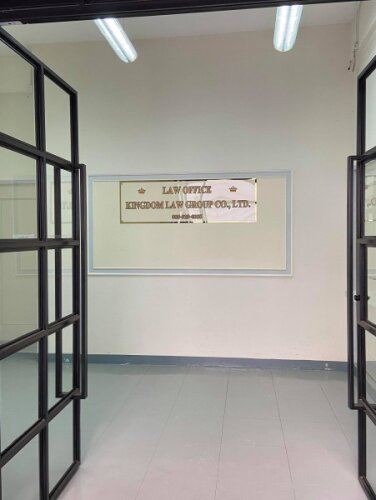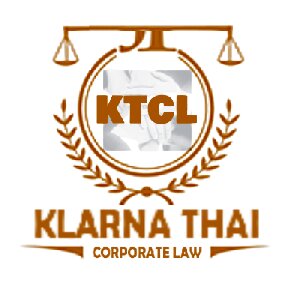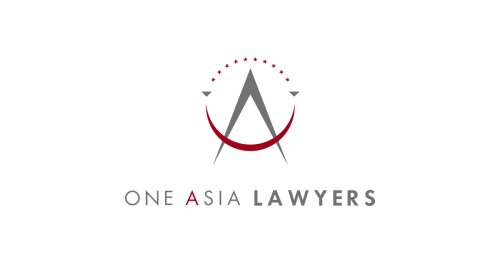Best Public-Private Partnerships (PPP) Lawyers in Watthana
Share your needs with us, get contacted by law firms.
Free. Takes 2 min.
List of the best lawyers in Watthana, Thailand
About Public-Private Partnerships (PPP) Law in Watthana, Thailand
Public-Private Partnerships (PPP) are collaborative frameworks between government entities and private sector companies designed to finance, develop, and operate projects that benefit the public. In Watthana, a key urban district of Bangkok, PPPs have played an increasingly vital role in infrastructure development, public utilities, transportation, and community services. PPP law in Watthana is informed by broader Thai national regulations but may include distinct local policy considerations and administrative procedures. The legal landscape for PPPs in Watthana aims to balance public interest, private sector innovation, and sustainable economic growth.
Why You May Need a Lawyer
Engaging in a PPP project can be complex and may involve navigating multiple layers of regulation, contractual obligations, and risk management requirements. Here are some common situations where legal assistance is important:
- Drafting and negotiating PPP contracts to ensure clarity and allocation of risks and responsibilities.
- Interpreting government policies, ordinances, and compliance obligations specific to Watthana or Bangkok.
- Managing disputes between public authorities and private partners, including issues of performance or compensation.
- Conducting due diligence for potential investors or partners to assess legal and financial risks.
- Securing permits, licenses, and regulatory approvals necessary for project execution.
- Advising on financing mechanisms and public procurement requirements.
- Ensuring compliance with anti-corruption laws and ethical business practices.
Local Laws Overview
PPPs in Watthana are regulated under the Public Private Partnership Act B.E. 2562 (2019), which sets out the national framework. Local administrative protocols, including those from the Bangkok Metropolitan Administration (BMA), may apply. Key aspects for Watthana include:
- All major PPP projects must receive approval from the relevant government boards and typically undergo a rigorous feasibility study.
- Competitive bidding or transparent selection processes are often mandatory to encourage fair competition.
- Local regulations may stipulate community engagement and environmental impact assessments especially in urbanized districts like Watthana.
- The BMA has additional guidelines for urban planning, land use, and public infrastructure which affect project design and implementation.
- Contractual agreements must clearly outline financial terms, service standards, dispute resolution mechanisms, and procedures for changes or termination.
Frequently Asked Questions
What is a Public-Private Partnership (PPP)?
A PPP is a cooperative arrangement where the public sector partners with private companies to deliver public infrastructure or services through shared investment, risk, and responsibility.
What types of projects in Watthana commonly use PPPs?
Common PPP projects in Watthana include transportation (such as light rail or bus networks), public utilities (water, power), healthcare facilities, school buildings, and community development infrastructure.
Which laws govern PPPs in Watthana?
The primary law is the Public Private Partnership Act B.E. 2562 (2019), supplemented by regulations issued by the Bangkok Metropolitan Administration and relevant sectoral ministries.
What is the approval process for a PPP project?
A PPP project must go through feasibility studies, government evaluations, and obtain formal approval from responsible authorities before contracts are signed.
Are foreign companies allowed to participate in PPPs?
Yes, subject to meeting Thai laws regarding foreign business operations, investment requirements, and sector-specific regulations.
How are disputes resolved in PPP agreements?
Dispute resolution mechanisms are typically detailed in the project contract, often involving mediation, arbitration, or recourse to Thai courts.
What is the duration of a typical PPP contract?
PPP contracts can vary greatly in duration but often range from 10 to 30 years, depending on the nature and scale of the project.
How does a private company recover its investment in a PPP?
Private entities may recover investments through user fees, service payments from the government, or long-term lease arrangements as specified in the project contract.
What are the risks for private companies involved in PPPs?
Common risks include changes in government policy, construction delays, demand shortfalls, and regulatory compliance requirements.
Do I need a lawyer to participate in a PPP?
While not legally mandatory, legal advice is highly recommended to ensure proper risk allocation, compliance with all regulations, and protection of contractual interests.
Additional Resources
If you are seeking information or assistance regarding Public-Private Partnerships in Watthana, consider these resources:
- Bangkok Metropolitan Administration (BMA) - for local policy and project approval guidelines.
- Public Private Partnership Committee - the primary national body overseeing PPP initiatives in Thailand.
- Board of Investment of Thailand (BOI) - for foreign participation guidelines and incentives.
- Ministry of Finance - for regulations and fiscal management of PPP projects.
- Local law firms and legal consultancies specializing in infrastructure and commercial law.
- Academic institutions and research centers with expertise in urban planning and public policy.
Next Steps
If you are considering engagement in a PPP in Watthana, start by outlining your project goals and identifying relevant authorities. Review local and national regulatory requirements carefully. It is advisable to consult with a lawyer experienced in PPP law to guide you through the feasibility stage, bid process, contract negotiation, and compliance checkpoints. You can reach out to the Bangkok Metropolitan Administration for specific guidance or contact a legal service provider with expertise in Thai infrastructure law. Clear professional advice can help you navigate the complexities of PPPs and protect your interests at every stage.
Lawzana helps you find the best lawyers and law firms in Watthana through a curated and pre-screened list of qualified legal professionals. Our platform offers rankings and detailed profiles of attorneys and law firms, allowing you to compare based on practice areas, including Public-Private Partnerships (PPP), experience, and client feedback.
Each profile includes a description of the firm's areas of practice, client reviews, team members and partners, year of establishment, spoken languages, office locations, contact information, social media presence, and any published articles or resources. Most firms on our platform speak English and are experienced in both local and international legal matters.
Get a quote from top-rated law firms in Watthana, Thailand — quickly, securely, and without unnecessary hassle.
Disclaimer:
The information provided on this page is for general informational purposes only and does not constitute legal advice. While we strive to ensure the accuracy and relevance of the content, legal information may change over time, and interpretations of the law can vary. You should always consult with a qualified legal professional for advice specific to your situation.
We disclaim all liability for actions taken or not taken based on the content of this page. If you believe any information is incorrect or outdated, please contact us, and we will review and update it where appropriate.















